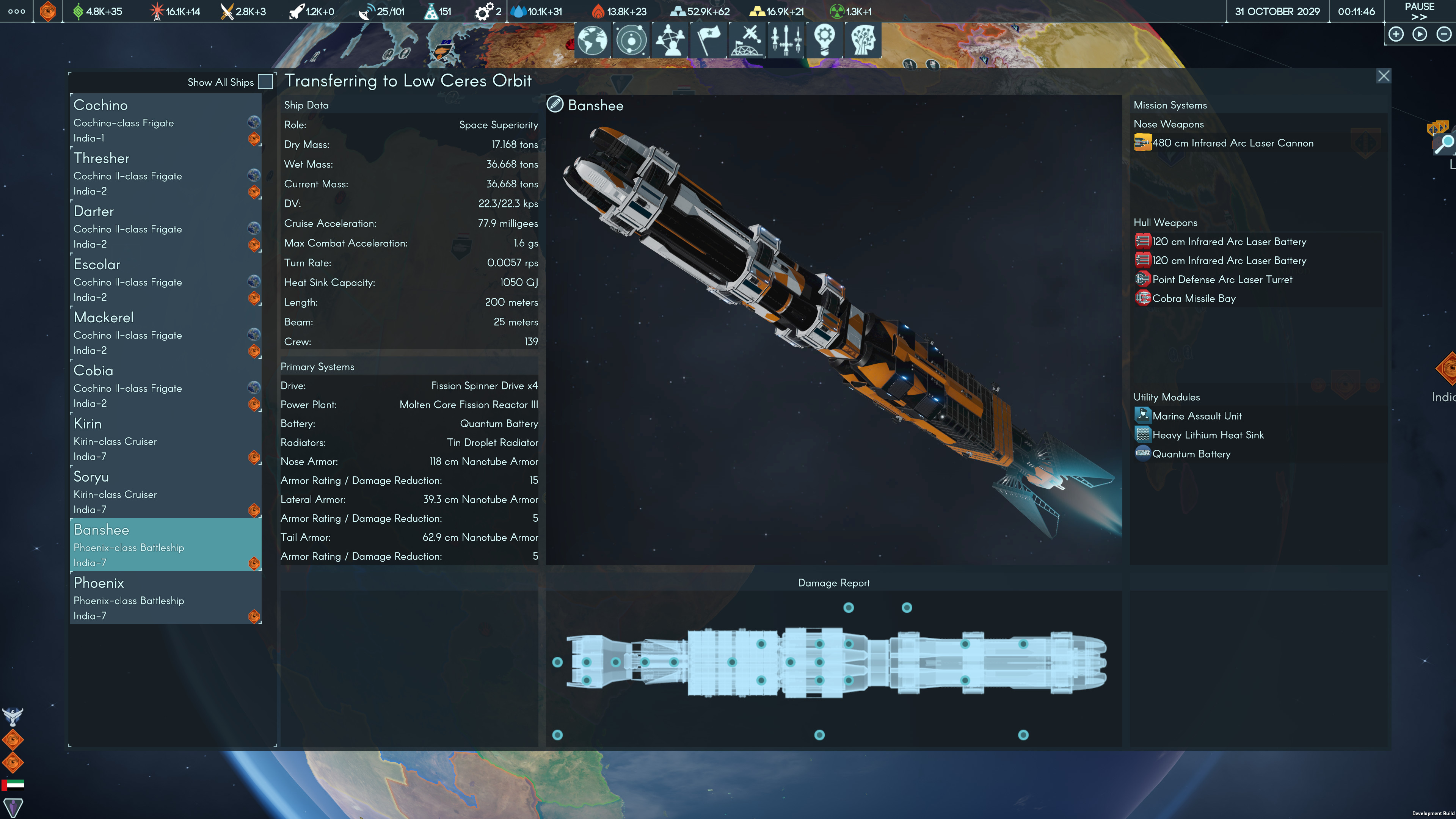Terra Invicta is a grand strategy game made by the creators of XCOM’s famous Long War mods, which was released in early access earlier this week. It is possibly the densest game I’ve ever played, and I think I’m in love with it.
In Terra Invicta, you play as one of seven illuminati-esque factions trying to manipulate the world from the shadows in the face of a looming alien threat. To do this, you influence government policies and priorities, direct global research, stage coups, develop a massive portfolio of corporations, non-profits, and government organizations, and imprison, assassinate, or turn enemy operatives. Eventually, you go into space and it becomes a ship design and fleet management game, too. It is maximalist to the point of rivaling Paradox Interactive’s densest strategy games.
Videos by VICE
In my first five hours with the game, I rarely thought about how to deal with the aliens. Instead, I focused on growing my sphere of influence throughout the world. The Resistance, the faction dedicated to pushing back against the aliens, without the fascist undertones of the rival Humanity First faction, begins with a foothold in South Korea.
Each country in Terra Invicta has a handful of control points, each embodying centers of power and influence in that country. South Korea, for example, has four. One for the mass media apparatus, one for corporations, one for the legislature, and one for the executive branch. Having control over these aspects of a country allows you to directly benefit from their efforts. If a country’s mass media is focused heavily on science, more of that nation’s funding is going to end up being directed towards research—which will benefit you in the long run.
From my base in South Korea, I spent the first year of in-game time all but ignoring major world powers like the United States and China, choosing instead to focus on powerful but frequently dismissed nations like Algeria, Egypt, Ireland, and Nigeria, where I ran months long PR campaigns to build an astounding amount of local support. With that support secured, I took control of every aspect of each nation. Then set my long-term plan into motion. I would, over the course of years, manipulate the priorities of each country until they became respected, global powerhouses, from which I could base my burgeoning illuminati-esque secret society.

After about a year, and a lot of work, I was ready for the second stage of my plan. The difficulty of influencing a country is based on its economic power and stability. Nations with a sub-trillion dollar GDP are the easiest to take control over, while nations like the U.S. with a 27.2 trillion dollar GDP are an absolute nightmare to interact with. So, I would start by taking control of the neighboring countries, which gives a boost towards actions in your target nation. Over six months, I took total control of both Mexico and Canada, manipulating their government policies to resemble the work I was doing in Algeria, Egypt, Ireland, and Nigeria.
However, at this point my operatives were spread thin. Attempting to run the affairs of not one, but six different countries was leading to a massive reduction in our Influence (a key resource in the game) production. There was just too much work to go around. So, I began temporarily ceding my control of countries. The national policies I set would stay in place, but the countries themselves would be on their own. This would become increasingly necessary as I entered stage three of my plan.
Two of my councilors, the characters actually doing the work of manipulating governments and global populations, were excellent public speakers. However, the U.S. is an extremely difficult country to take power in, on account of its massive GDP. Even a terrific persuasion stat of 11, and the neighboring country boost of +5 paled in comparison to the U.S. ‘s massive -27 difficulty modifier. And so, I set to work making one of my operatives a U.S. media darling and national hero. Your councilors have traits which improve their ability to operate in certain countries. The media darling trait, for example, gives characters a persuasion boost in democratized countries. You can add traits to characters with experience they gain as they succeed in influencing global politics. With the experience gained from the previous year and a half of global manipulation, I was able to give the necessary traits to a South Korean diplomat in my organization.
Terra Invicta allows you to spend exponentially increasing resources to boost your chances of success on an action. Spending 10 units of the game’s currency gives you a +1 boost, 20 for a +2, 40 for a +3, so on and so forth. Influence, the resource for taking control over a country, begins at 1, and scales all the way up to 512 for a +9 modifier. With all of my councilor’s stats, traits, and the surrounding country boost, I only needed to spend 64 Influence (by this point in the game I’d stockpiled about 75) to have a 77 percent chance of taking power in the U.S. Two years of in-game work led up to that 77 percent dice roll. I sent my counselor the mission, sat, and hoped.

After two weeks, the message came through. We’d done it. We were the first in-game faction to have a foothold in the United States, more than that, we were the first in-game faction to have a foothold in any global superpower. But our power came with a great cost. The resource strain of running the U.S. Mass Media required me to temporarily cede control of Algeria, Egypt, and Nigeria. Nigeria fell quickly to a rival faction. Algeria, on the other hand, lasted many, many months against other factions’ attempts to purge our influence. To maintain control over Egypt, I had to dedicate one of my counselors to constant PR campaigning and resource defense in the country, frightening away enemy operatives who would attempt to take power while the country was vulnerable.
As my power in the U.S. grew, I was forced to divest from South Korea as well, leaving me with control over Canada, Egypt, Ireland, Mexico, and the United States. However, this was more than enough to be the most powerful faction in the world, but it came at a cost. In the years I’d spent focusing on establishing a stable foundation for my research, other factions had spent years directing global science initiatives—and the aliens had begun building bases at the distant edges of our solar system. That’s right, you forgot about the aliens, didn’t you. Now, after two in-game years and five hours of real world time, I have to do the real work of preparing for an alien invasion.
Terra Invicta has no interest in letting you rest. Nor does it particularly care if you are overwhelmed by its systems. I have not even mentioned the game’s ship design, orbital base building, or fleet combat mechanics, because I haven’t touched them. In five hours of real world time, I have barely scratched the surface of the game’s mechanics, and yet I have one of the most memorable stories of global domination and influence I’ve ever seen a grand strategy game produce.
Terra Invicta makes me simultaneously feel like the smartest puppet master to ever walk the earth, and the dumbest, most easily startled woman alive. And for that? I consider its first forays into early access a tremendous success.
More
From VICE
-

Screenshot: Sony Interactive Entertainment -

-

LOS ANGELES, CALIFORNIA – NOVEMBER 14: Timothée Chalamet seen at a Special Screening of A24's "Marty Supreme" at Academy Museum of Motion Pictures on November 14, 2025 in Los Angeles, California. (Photo by Eric Charbonneau/A24 via Getty Images) -

Photo: Gandee Vasan / Getty Images
